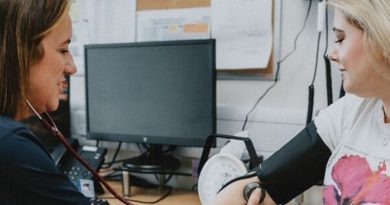Young students experience day of STEM activities
HMS SULTAN have recently hosted a group of excited Year Five students from Grange Junior School as they experienced an action-packed day of science and engineering activities; which helped the school to mark their ‘Science Week’ and built on their longstanding relationship with the training establishment.
The visit gave pupils the opportunity to see real-world applications of their classroom learning while experiencing life at one of the Royal Navy’s premier engineering training establishments. They were able to participate in a range of STEM activities that explored aerodynamics, electrical principles and even touring aircraft in the hands-on environment.
The day’s activities began with a tour of the Marine Engineering Training Group’s Watt Hangar, followed by electrical principles demonstrations in the Brunel Atrium. Pupils then moved to the Royal Naval Air Engineering and Survival Equipment School’s Newcomen Hangar where they enjoyed aircraft tours, aerodynamics competitions, and exciting propulsion demonstrations. It proved a successful day of learning and engagement from all the students, alongside huge gasps and laughter throughout the activities.
Lieutenant Matthew Dunn RN, Visitor Liaison Officer for the day, said: “It’s been fantastic to welcome such enthusiastic young minds to HMS Sultan. These pupils represent our next generation of potential engineers and scientists. The Royal Navy considers STEM outreach a priority and seeing the excitement on these children’s faces when they got to explore aircraft and conduct their own aerodynamics experiments made it all worthwhile. With nearly a third of Grange Junior’s pupils coming from service families, these connections are especially meaningful.”
Mr Scott Graham, Year 5 class teacher, said: “I was surprised how engaged the children were when we looked at the magnet coil – they put electricity through and saw the jam jar lids spinning. They could relate that to things in their own home like a tumble dryer, or if their family have an electric car, it’s the same sort of principle that moves those vehicles. It was really engaging to see how these theories apply to the real world.
“For a third of my pupils who come from service families, these Royal Navy visits help children connect classroom learning with potential future careers. Rather than just hearing mum or dad talk about it, going from classroom learning to actually being out somewhere else and getting experts talking to them gives them an idea of what they could achieve and work towards throughout their school career.”
Ten-year-old Nathan from Class 5SG said: “My favourite part is understanding the mechanics of how to make engines and materials that can help make electricity. It was very interesting. I was actually surprised how massive the engine is and how you need to operate it for it to start. The most exciting piece of equipment was the volt generator – you have to twist around as fast as you can, and it takes technique and practise. I was able to get 19.4 volts which is really good, and I’ve got a certificate for the highest volt pusher!
“Today’s visit has made me think about becoming an engineer when I grow up. It’s teaching me how there’s lots of ways to make materials or an engine and it takes lots of practise to understand which is which, so in case of an emergency you can understand how to do it without any struggles. Science week at school is brilliant too – it’s helping me learn about more science and I can grow up to be a scientist one day, who knows!”
PICTURED BY LP BAZ SWAINSBURY: Year 5 pupils from Grange Junior School get hands-on experience with engineering equipment during their visit to HMS Sultan as part of Science Week celebrations.


